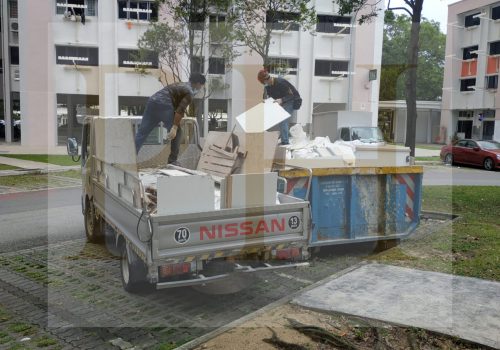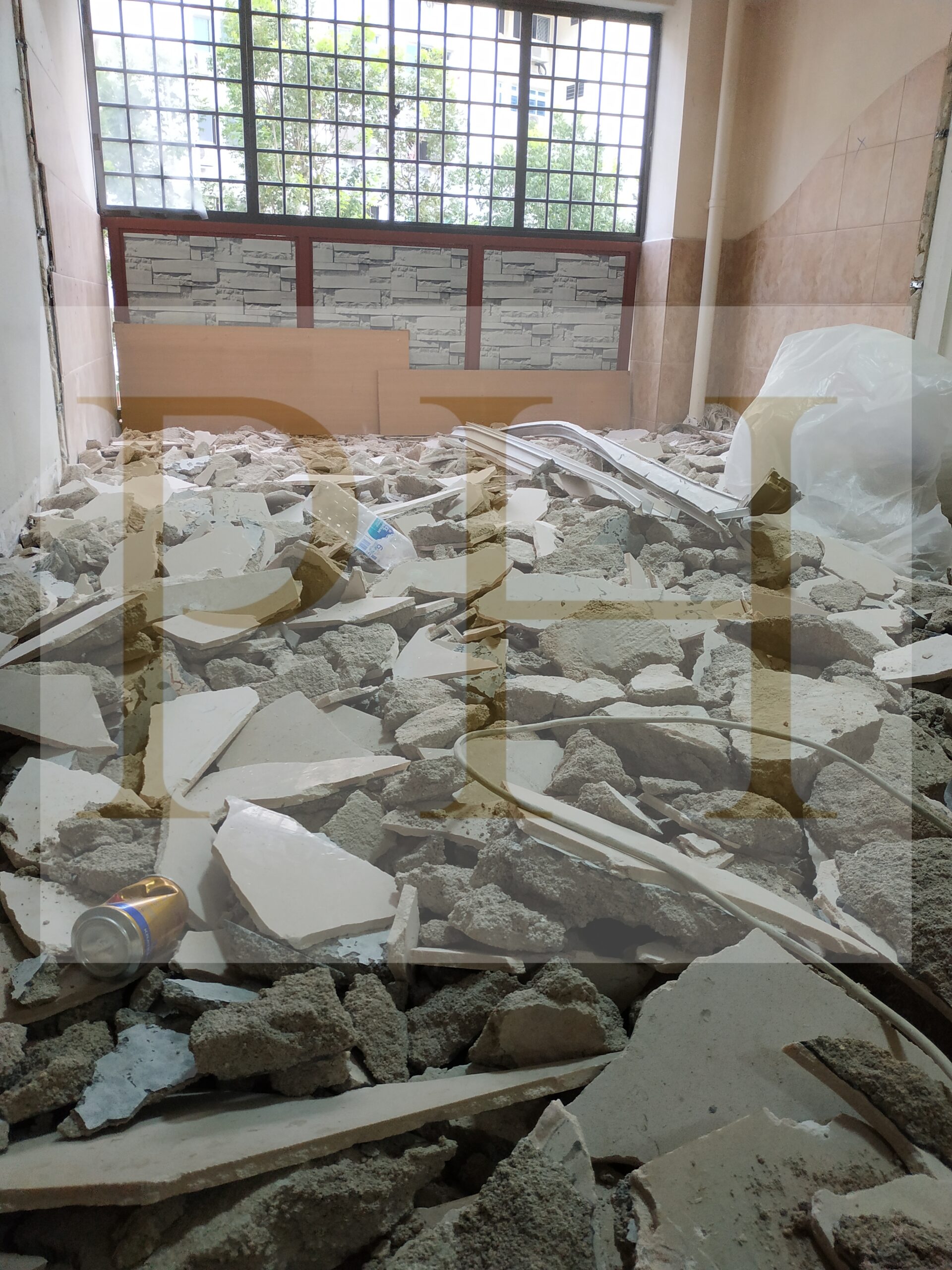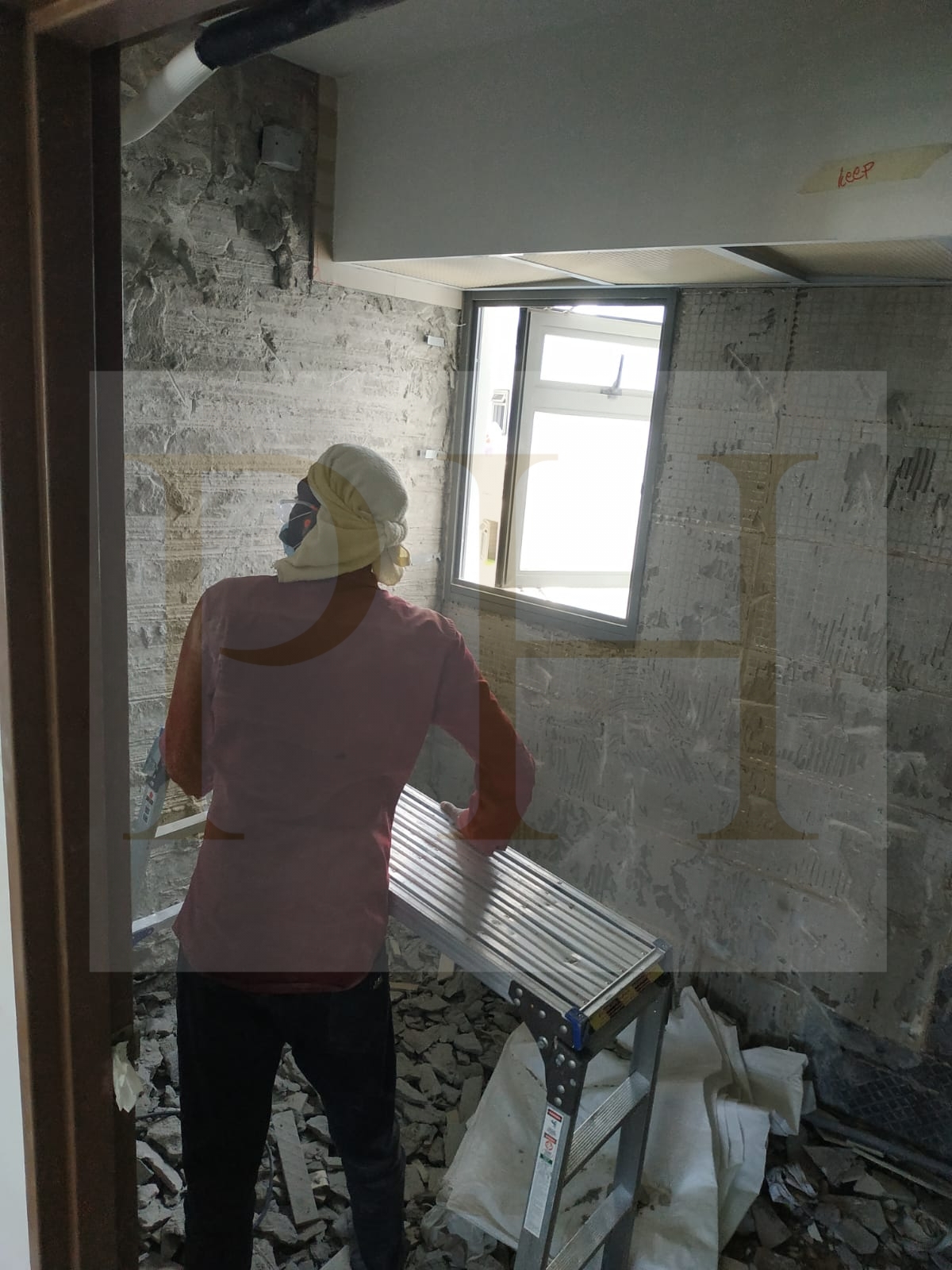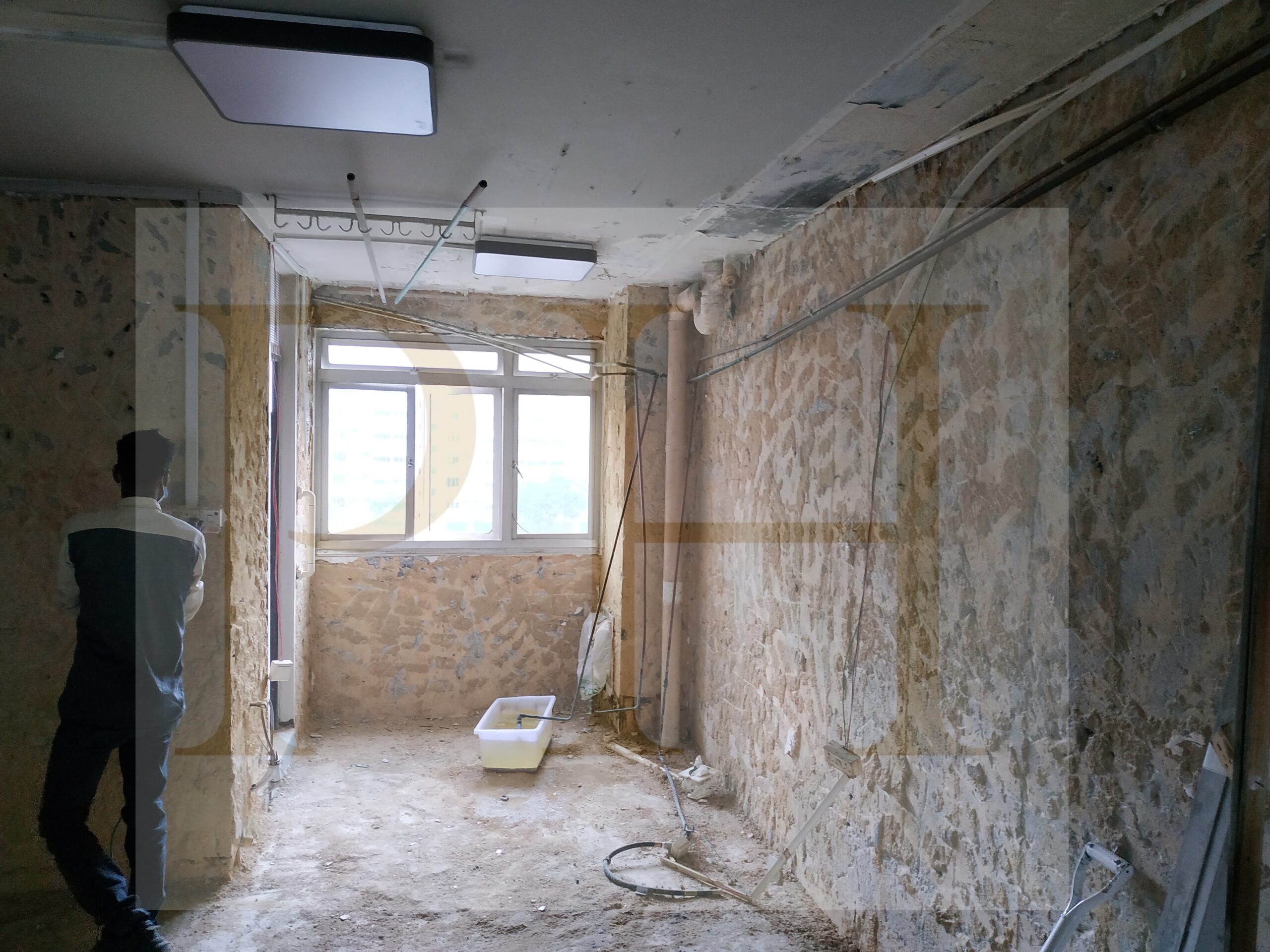Renovation Made Easy: Hiring a Reliable Contractor for Your Next Project
Are you planning a renovation project and in need of a reliable renovation contractor in Singapore? Look no further! Finding the perfect contractor for your next home improvement project can be a daunting task, but with the right guidance, it doesn’t have to be. In this article, we will walk you through the steps to hiring a trustworthy contractor who will make your renovation dreams a reality.

When it comes to hiring a contractor, you want someone experienced, skilled, and professional. With professionalism in mind, our team has researched and compiled a comprehensive guide to help you navigate the selection process with ease. From conducting thorough interviews to checking references and reviewing portfolios, we will provide you with the tools you need to confidently choose the perfect contractor for your project.
We understand the importance of having a contractor you can rely on. We believe in delivering high-quality content that empowers homeowners like you to make informed decisions when it comes to their home renovations. So, let’s dive in and discover the key factors to consider when hiring a contractor for your next project.
HDB Renovation Contractor
HDB contractors must navigate through a spectrum of permissible and prohibited works to ensure compliance with HDB‘s regulations. Certain renovations, characterized by their potential impact on structural integrity and safety, fall under the category of disallowed modifications. Such prohibited alterations encompass overloading of structures, hacking of external facades, removal or alteration of structural members, plastering of ceilings, partitioning with combustible materials, and raising floor thickness beyond 50mm, inclusive of tile thickness.
Additionally, the construction of water tanks in bathrooms, external painting of balcony or common corridor walls, and changes to the use of air-conditioning ledges are also forbidden without proper authorization. On the other hand, there exists a category of renovations that do not necessitate a permit from the Housing and Development Board (HDB). Nevertheless, these permissible works remain subject to HDB’s Renovation Guidelines and Conditions.
Examples of such renovations include the replacement of main entrance gates, installation of internal grilles, tiling with a thickness less than 13mm using adhesive, wall tiling on bare concrete up to ceiling height, light fittings installation, sticking non-reflective solar film on balcony sliding doors or windows, minor drilling works, interior painting, and the installation of curtain rails internally. The demarcation between allowed and prohibited renovations underscores the importance of adhering to regulatory guidelines for a harmonious and secure living environment.
To look for HDB licensed contractors | HDB approved contractors| HDB registered contractors, you can search here.
Importance of hiring a reliable contractor for renovations
Renovating your home is an exciting endeavor that can significantly enhance its appeal and value. However, it is crucial to hire a reliable contractor to ensure the success of your project. A trustworthy contractor brings experience, skills, and professionalism to the table, providing you with peace of mind throughout the renovation process.
When you hire a reliable contractor, you can be confident that they will adhere to timelines and budgets, deliver high-quality workmanship, and use the best materials available. Additionally, they will have the necessary permits and licenses, ensuring that your project complies with local building codes and regulations. By entrusting your renovation to a reliable contractor, you can avoid costly mistakes, delays, and potential legal issues.
1. Researching and finding potential contractors
The first step in hiring a reliable contractor is to research and compile a list of potential candidates. Start by seeking recommendations from friends, family, or neighbors who have recently completed successful renovations. Their firsthand experiences and recommendations can be invaluable in finding trustworthy contractors.
You can also use online platforms and directories specifically designed to connect homeowners with contractors in their area. These platforms often provide reviews and ratings from previous clients, giving you a better idea of a contractor’s reputation. Additionally, browsing through local business directories and checking websites and social media profiles can provide further insight into a contractor’s expertise and portfolio.
2. Evaluating contractor qualifications and credentials
Once you have a list of potential contractors, it’s time to evaluate their qualifications and credentials. Begin by checking if they have the necessary licenses and certifications required by your local authorities. A reliable contractor will be properly licensed and insured, protecting you from any liability in case of accidents or damages during the renovation.
Furthermore, assess the contractor’s experience and expertise in the specific type of renovation you require. Some contractors specialize in kitchen remodels, while others excel in bathroom renovations or whole-house makeovers. Look for contractors who have a proven track record in projects similar to yours and have the necessary skills and knowledge to execute your vision.
3. Checking contractor references and past work
Before making a final decision, it is essential to check a contractor’s references and past work. Reach out to their previous clients and ask about their experience working with the contractor. Inquire about the quality of work, adherence to deadlines, communication skills, and overall professionalism. A reliable contractor will be more than willing to provide references and showcase their past projects.
Additionally, take the time to review the contractor’s portfolio or gallery of completed projects. Look for projects that are similar in scope and style to yours. This will give you a better understanding of the contractor’s capabilities and whether their work aligns with your expectations. Pay attention to the quality of craftsmanship, attention to detail, and overall aesthetic appeal of their past projects.
4. Obtaining and comparing contractor quotes
Once you have narrowed down your list of potential contractors, it’s time to obtain and compare quotes. Reach out to each contractor and provide them with detailed information about your renovation project. This will enable them to provide accurate estimates of the cost, timeline, and scope of work.
When comparing contractor quotes, it’s important to look beyond the bottom line. Consider the breakdown of costs, materials used, and any additional services or warranties included. A reliable contractor will provide transparent and detailed quotes that clearly outline all aspects of the project. Be wary of contractors who provide significantly lower quotes as they may compromise on quality or use subpar materials.
5. Signing a contract with the chosen contractor
Before commencing the renovation, it is crucial to have a written contract in place with your chosen contractor. The contract should include details such as project timelines, payment schedule, scope of work, warranties, and any specific terms and conditions. Review the contract carefully and ensure that all your expectations and requirements are clearly outlined.
A reliable contractor will be willing to discuss and address any concerns or questions you may have before signing the contract. It’s important to have open and honest communication to avoid any misunderstandings or disputes later on. Remember, the contract serves as a legal document that protects both parties and ensures a smooth and successful renovation process.
6. Communication and project management during the renovation
During the renovation, effective communication and project management are essential for a successful outcome. A reliable contractor will keep you updated on the progress of the project, address any issues or changes promptly, and ensure that your vision is being realized. They will maintain open lines of communication, allowing you to ask questions, provide feedback, and make any necessary adjustments along the way.
Regular site visits and meetings with your contractor can help you stay informed and involved in the renovation process. It’s important to establish a clear communication plan from the beginning, specifying preferred modes of communication and frequency of updates. By maintaining a strong line of communication, you can address any concerns or make necessary decisions promptly, ensuring a smooth and stress-free renovation experience.
7. Ensuring quality workmanship and materials
When hiring a reliable contractor, you can trust that they will prioritize quality workmanship and materials. A reputable contractor will have established relationships with suppliers and subcontractors, ensuring access to high-quality materials and skilled craftsmen. They will use proven construction techniques and industry best practices to deliver a renovation that exceeds your expectations.
To ensure the quality of workmanship and materials, discuss your expectations with the contractor before the project begins. Specify any particular brands or materials you prefer, and confirm that they will be utilized in the renovation. A reliable contractor will be receptive to your input and strive to meet your requirements while offering their expertise and suggestions for improvement.
8. Dealing with unexpected issues or changes during the renovation
Renovations often come with unexpected issues or changes that may arise during the construction process. A reliable contractor will be experienced in handling such situations and will work collaboratively with you to find practical solutions. They will communicate openly about any unforeseen challenges and provide alternative options to keep the project on track.
It’s important to approach unexpected issues or changes with flexibility and open communication. Work closely with your contractor to evaluate the impact of any deviations from the original plan and make informed decisions together. A reliable contractor will be transparent about any additional costs or adjustments required and will provide you with the necessary information to make the best choices for your renovation project.
9. Final inspection and satisfaction guarantee
Once the renovation is complete, schedule a final inspection with your contractor to ensure that everything meets your expectations. Walk through the renovated space together, paying attention to the details and confirming that all work has been carried out to your satisfaction. A reliable contractor will address any concerns or touch-ups promptly, ensuring that you are fully satisfied with the final result.
Before making the final payment, ensure that all contractual obligations have been met and that any warranties or guarantees are provided in writing. A reliable contractor will stand behind their work and offer a satisfaction guarantee, giving you peace of mind knowing that they take pride in their craftsmanship and are committed to ensuring your complete satisfaction.
In short, hiring a reliable contractor is crucial for a successful and stress-free renovation experience. By conducting thorough research, evaluating qualifications and references, obtaining and comparing quotes, and signing a detailed contract, you can confidently choose a contractor who will bring your renovation dreams to life.
With effective communication, attention to quality, and the ability to handle unexpected issues, a reliable contractor will ensure that your renovation project is a resounding success. So, take the first step today and embark on your renovation journey with a trusted professional by your side!
Checking renovation contractor references and past work
The first step in hiring a reliable contractor is to conduct thorough research and create a list of potential candidates. Start by asking friends, family, and neighbors for recommendations. Their firsthand experiences can provide valuable insights into the contractors they have worked with and help you narrow down your options. Additionally, check online directories and review websites to find contractors in your area with positive customer reviews.
Once you have a list of potential contractors, it’s time to dig deeper and gather more information. Visit their websites to learn more about their services, expertise, and past projects. Look for contractors who specialize in the type of renovation you are planning, as they will have the necessary skills and experience to handle your project effectively.
Next, contact each contractor on your list to schedule initial consultations. This will allow you to discuss your project in detail and gauge their level of professionalism and communication skills. During these consultations, ask about their availability, estimated timeline, and pricing structure. Take note of how responsive they are and whether they provide clear and concise answers to your questions.
Obtaining and comparing renovation contractor quotes
When evaluating potential contractors, it’s essential to consider their qualifications and credentials. This will help you determine if they have the necessary expertise and certifications to complete your project to the highest standards. Start by verifying their licenses and insurance coverage. A reputable contractor will be licensed, bonded, and insured, protecting both you and themselves in case of any accidents or damages.
In addition to licenses and insurance, look for certifications and affiliations that demonstrate their commitment to professionalism and ongoing education. Some common certifications to look out for include those from industry associations such as the National Association of Home Builders (NAHB) or the National Kitchen and Bath Association (NKBA). These certifications indicate that the contractor has met specific standards and has a commitment to staying up-to-date with industry trends and best practices.
Furthermore, consider the contractor’s experience and track record. How long have they been in business? Have they completed similar projects in the past? Request a portfolio of their work, including before and after photos, to assess the quality of their craftsmanship. This will give you a sense of their style and attention to detail, helping you determine if their work aligns with your vision for your renovation project.
Signing a contract with the chosen renovation contractor
Before making a final decision, it’s crucial to check the references of the contractors you are considering. Reach out to their past clients and ask about their experience working with the contractor. Inquire about the quality of the work, adherence to timelines, and overall satisfaction with the project. Pay attention to any red flags or consistent negative feedback that may indicate potential issues.
In addition to speaking with references, take the time to visit completed projects in person if possible. Seeing the contractor’s work firsthand will allow you to assess the quality and attention to detail. If the contractor is unwilling or unable to provide references or allow you to visit past projects, consider it a red flag and proceed with caution.
When reviewing past work, consider the scope and scale of the projects. Are they similar to what you have in mind for your renovation? If so, pay close attention to the finishes, materials used, and overall design. This will give you a better idea of the contractor’s capabilities and whether their style aligns with your vision.
Communication and project management during the renovation
Once you have narrowed down your list of potential contractors, it’s time to obtain and compare quotes. Request detailed quotes from each contractor, outlining the scope of work, materials, labor costs, and any additional expenses. This will allow you to compare apples to apples and make an informed decision based on both price and quality.
When reviewing quotes, be wary of significantly low or high bids. While a low bid may seem tempting, it could indicate that the contractor is cutting corners or using subpar materials. On the other hand, a high bid may not necessarily guarantee higher quality. Look for quotes that are within a reasonable range and consider the overall value rather than just the price.
In addition to the cost, consider the contractor’s availability and estimated timeline. A contractor who is in high demand may have a longer wait time, which could impact your project’s schedule. Balance the contractor’s availability with your desired timeline to ensure a smooth and timely renovation process.
Ensuring quality workmanship and materials
Once you have selected a contractor, it’s essential to have a written contract in place before any work begins. A contract protects both you and the contractor by outlining the expectations, scope of work, payment schedule, and any warranties or guarantees. It provides clarity and ensures that both parties are on the same page throughout the project.
When reviewing the contract, pay close attention to the details. Ensure that it includes a start and completion date, a detailed breakdown of the work to be performed, and a payment schedule that aligns with your budget. Additionally, make sure that any warranties or guarantees are clearly stated in the contract, giving you peace of mind in case any issues arise after the project is completed.
Before signing the contract, read it thoroughly and ask any questions you may have. If there are any discrepancies or areas of concern, discuss them with the contractor and seek clarification or amendments if necessary. Remember, a contract is a legally binding agreement, and it’s essential to fully understand its terms and conditions before signing.
Dealing with unexpected issues or changes during the renovation
Effective communication and project management are key to a successful renovation. From the start of the project until its completion, it’s crucial to maintain open lines of communication with your contractor. Regularly scheduled meetings and progress updates will ensure that everyone is on the same page and that any issues or changes can be addressed promptly.
During the renovation, establish a clear chain of communication and designate a point person who will be responsible for coordinating with the contractor. This will streamline communication and help avoid any miscommunication or delays. Additionally, ensure that you have a reliable method of contact, whether it’s phone, email, or a project management tool, to stay in touch with the contractor and address any concerns or questions that may arise.
Final inspection and satisfaction guarantee
Quality workmanship and materials are essential for a renovation that will stand the test of time. When hiring a contractor, inquire about the type of materials they use and their suppliers. A reliable renovation contractor will have established relationships with reputable suppliers who provide high-quality materials. They will also have a keen eye for detail and a commitment to delivering superior workmanship.
To ensure quality, consider visiting the supplier’s showroom to see the materials firsthand. This will allow you to assess their quality and choose the options that best suit your style and budget. Additionally, ask the contractor about their quality control processes and how they ensure that the work meets industry standards and your expectations.
During the renovation process, conduct regular inspections to ensure that the work is progressing as planned. Address any concerns or issues promptly to avoid any potential delays or additional costs. By actively monitoring the project and communicating with your contractor, you can ensure that the renovation meets your vision and quality standards.
You might also be interested in hacking contractor | HDB Hacking Permit






